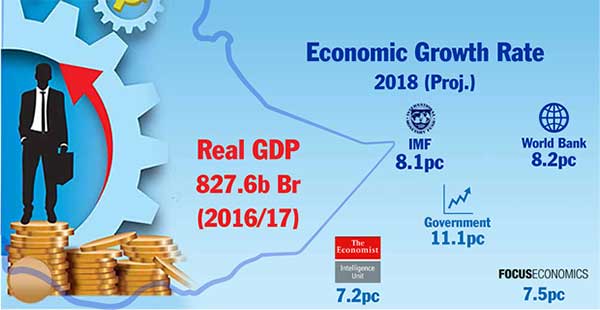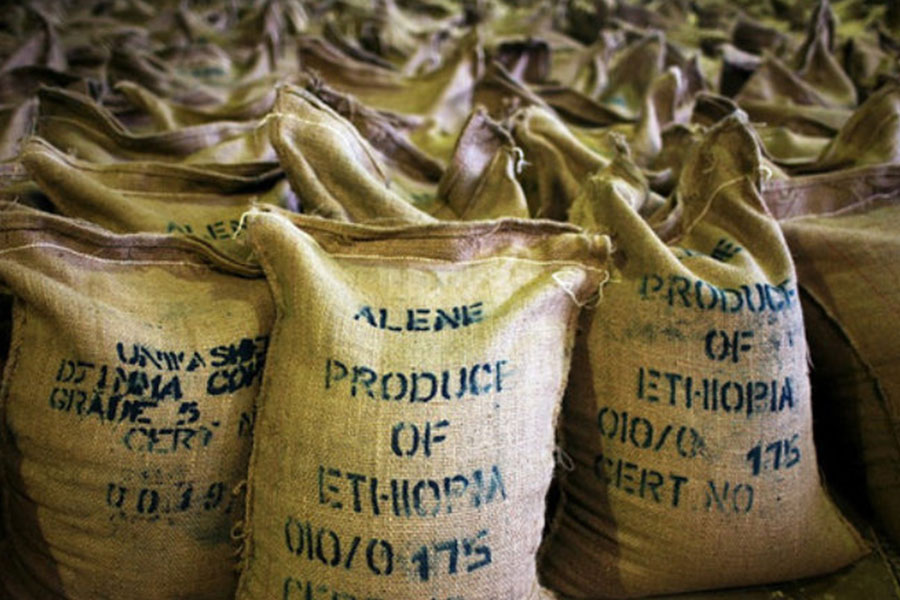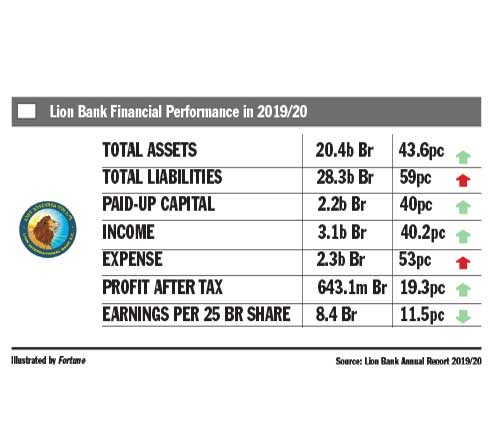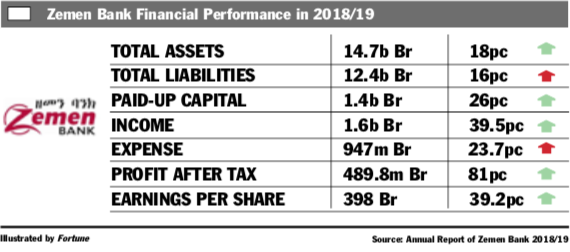
Jan 5 , 2020
 Ethiopia averaged 9.9pc annual GDP growth from 2008 to 2018, an impressive record by any standard. It has experienced uninterrupted and unprecedented expansion in the economy from six billion dollars in 1988 to 97 billion dollars it is projected to reach in 2020.
Ethiopia averaged 9.9pc annual GDP growth from 2008 to 2018, an impressive record by any standard. It has experienced uninterrupted and unprecedented expansion in the economy from six billion dollars in 1988 to 97 billion dollars it is projected to reach in 2020. Before all foreign news stories about Ethiopia started with the sentence, “The reformist Prime Minister of Ethiopia who came from humble backgrounds . . .,” they started with, “One of the fastest-growing countries in the world . . .”
There was no falsity to that narrative. Ethiopia averaged 9.9pc annual GDP growth from 2008 to 2018, an impressive record by any standard. It has experienced uninterrupted and unprecedented expansion in the economy from six billion dollars in 1988 to 97 billion dollars it is projected to reach in 2020. Per capital income has surged seven times as well.
But growth brought with it almost as many problems as it solved - income inequality was the most evident of these. Ethiopia added two percentage points in the Gini-coefficient index in 2015, from 33 points five years earlier, showing an evident increase in the gap between the poor and wealthy. Economic inequality reared its ugly head higher and higher as growth sped along.
At the same time, as Karl Marx had predicted, it became clear to the economically disenfranchised that they were getting the short end of the stick and decided to rise up. Together with a range of social and political demands, income inequality became one of the catalysts in driving the anti-government movement that climaxed in April 2018.
PUBLISHED ON
Jan 05,2020 [ VOL
20 , NO
1028]

Fortune News | Mar 16,2019

Viewpoints | Jun 24,2023

Fortune News | May 24,2021

Fortune News | Dec 19,2021

Viewpoints | Apr 22,2023

Fortune News | Mar 13,2021

Fortune News | Feb 02,2019

Commentaries | Mar 19,2022

Fortune News | Feb 01,2020

Sunday with Eden | Jul 08,2023

Dec 22 , 2024 . By TIZITA SHEWAFERAW
Charged with transforming colossal state-owned enterprises into modern and competitiv...

Aug 18 , 2024 . By AKSAH ITALO
Although predictable Yonas Zerihun's job in the ride-hailing service is not immune to...

Jul 28 , 2024 . By TIZITA SHEWAFERAW
Unhabitual, perhaps too many, Samuel Gebreyohannes, 38, used to occasionally enjoy a couple of beers at breakfast. However, he recently swit...

Jul 13 , 2024 . By AKSAH ITALO
Investors who rely on tractors, trucks, and field vehicles for commuting, transporting commodities, and f...

Oct 11 , 2025
Ladislas Farago, a roving Associated Press (AP) correspondent, arrived in Ethiopia in...

Oct 4 , 2025
Eyob Tekalegn (PhD) had been in the Governor's chair for only weeks when, on Septembe...

Sep 27 , 2025
Four years into an experiment with “shock therapy” in education, the national moo...

Sep 20 , 2025
Getachew Reda's return to the national stage was always going to stir attention. Once...